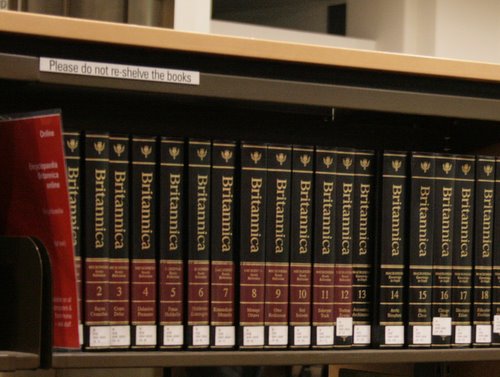The New York Times has reported the the Encyclopaedia Britannica will no longer produce a printed edition as content will now only be available digitally. The decision ends a 244 year tradition and signals a significant shift by the encyclopaedia’s Chicago publisher.
While many have predicted that the rise of easily updatable websites like Wikipedia would see the end of the printed encyclopaedia, this might not mean the end of the printed book as others are touting. The encyclopaedia may well have been the form of printed book most threatened by the increasing reliance on digital content. The relatively slow process of editing and publishing means that many entries can be out of date before the volume hits the shelves.
Is this need for constantly updated information- with an emphasis placed on the speed of updating rather than rigour- a worrying trend? Surely it just further emphasises the importance of being able to critically analyse a source for reliability and accuracy. Maybe it will lead to an even savvier generation of readers who constantly question the reliability of information and evaluate their sources.
Perhaps the greater concern for many (apart from any door-to-door encyclopaedia sellers still out there) may be that we may no longer have printed copies that document the prevailing knowledge of our time. Older encyclopaedias like the Nuremberg Chronicle provide an insight into the accepted beliefs of a time period, or at least the accepted beliefs of the writers and editors. Surely this move to digital content raises even more issues surrounding digital archiving and preservation. Maybe people will be visiting libraries and museums in a hundred years to pore over archived copies of Wikipedia.
Should we be concerned about this shift to digital, or is it time to accept that the printed encyclopaedia can’t compete with the wealth of constantly updated content available?

